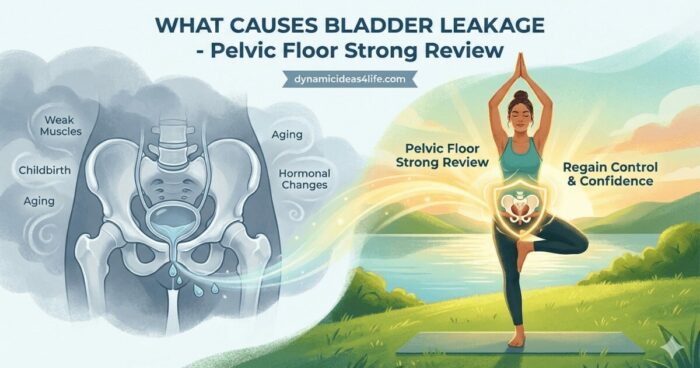When it comes to IBD and the Elderly this presents distinct challenges for those that suffer. Encompassing conditions like Ulcerative Colitis and Crohn’s Disease this is a frequent health concern for many of our older friends and relatives.
Whilst afflicting individuals of all ages, IBD (Inflammatory Bowel Disease) becomes more prevalent in the elderly population. Predominated by inflammatory conditions affecting the gastrointestinal tract, it brings about a series of implications on the quality of life, physical comfort, and overall health stature of the patient.
With this in mind, this discussion aims to provide clear-cut information to the general public about IBD, including an overview of its causes and incidence, particularly in the elderly population.
Outlining the typical symptoms, and diagnosis methods, and elaborating on the potential challenges, complications, and common treatment management strategies.
In this article, we shall look to offer practical advice for those living with IBD in old age.
If you are somebody looking to learn more about IBD and the Elderly then please keep reading.
Understanding IBD and the Elderly: A Comprehensive Guide
Inflammatory Bowel Disease (IBD) is a term used to classify disorders that cause inflammation of your intestines, with symptoms varying from abdominal cramps to severe diarrhoea. Among the most diagnosed types of IBD, Ulcerative Colitis and Crohn’s disease are usually the most commonly found in the general population and the elderly in particular.
About Ulcerative Colitis and Crohn’s Disease
Ulcerative Colitis, an inflammation of the inner lining of the colon and rectum, can exhibit symptoms like bowel urgency, diarrhoea, and bloody stools. Meanwhile, Crohn’s Disease could affect any part of your gastrointestinal tract, from your mouth to your anus.
Symptoms resemble those of Ulcerative Colitis, with the addition of reduced appetite and weight loss. Both conditions can occur at any age, but they are generally more common in people aged between 15 and 35.
The Main Causes of Inflammatory Bowel Disease
Despite extensive research, the exact cause of IBD remains unknown. Numerous studies suggest that a combination of factors like genetic predisposition, environmental influence, and an anomalous immune response contribute to the development of IBD.
Researchers have found that IBD is more common among people with a family history of this disease. Factors such as smoking, excessive use of nonsteroidal anti-inflammatory drugs, and a diet rich in fats and processed foods also contribute to the onset of IBD.
Bacterial or viral infections might spur IBD in some people, triggering the immune system to cause inflammation in the gastrointestinal tract even after the infection is resolved.
Incidence of IBD in Elderly Populations
While IBD can develop at any age, the incidence has been reported to be rising in elderly populations, with roughly 10-15% of new IBD cases diagnosed in adults aged 60 years and above. The actual incidence may be higher, as mild cases in the elderly can often go unnoticed or misdiagnosed. As people live longer, more and more are being diagnosed with IBD and are living with the disease.
Regarding IBD in older patients, there are specific considerations to take into account. For instance, older patients are more likely to suffer from other chronic medical conditions, which could complicate the IBD treatment process.
Additionally, some IBD treatments may increase health risks for older patients with pre-existing conditions.
Therefore, carefully tailored treatment regimes are necessary for managing IBD in elderly patients.
Main Things To Note:
Inflammatory Bowel Disease (IBD), often considered a condition typical among younger people, is witnessing an escalating incidence in older adults, according to the latest studies.
As a result, the comprehensive understanding and treatment management of IBD among the elderly is swiftly ascending the list of priorities in the medical field.

Symptoms and Diagnosis of IBD in the Elderly
Recognising IBD symptoms in the Elderly
Characterised by a diversity of symptoms varying from mild to severe, the manifestations of Inflammatory Bowel Disease (IBD) in the elderly depend largely on the section of the digestive tract affected. IBD is mainly categorised into two types: Crohn’s disease and Ulcerative Colitis, each with differing symptoms.
In older adults, Crohn’s disease can incite discomfort throughout varying parts of the abdomen due to inflammation that can impact any region of the digestive tract. Frequent diarrhoea, often containing blood or mucus, is a typical sign.
Additional symptoms can include fatigue, weight loss, and a decrease in appetite. Crohn’s disease can also lead to extra-intestinal symptoms such as arthritis, eye inflammation, and skin disorders.
On the other hand, Ulcerative Colitis primarily influences the colon and rectum, initiating symptoms such as blood-filled diarrhoea, rectal discomfort and unanticipated weight loss.
Additional symptoms can comprise fever, fatigue, and even joint pain.
In elderly individuals, the intensity of symptoms can vary with phases of minor to no symptoms, known as remission, followed by periods of increased symptom activity, or flare-ups.
Understanding IBD Diagnosis in Older Adults
Diagnosing Inflammatory Bowel Disease (IBD) in older patients can often be a nuanced process. This is primarily due to the physiological changes that accompany ageing and also the common presence of other co-existing health conditions. To diagnose IBD, a larger picture is pieced together through various stages.
The process usually begins with a thorough study of the patient’s medical background. This includes discussing symptoms, their duration, family history related to IBD or other autoimmune diseases, smoking history, use of nonsteroidal anti-inflammatory drugs (NSAIDs), and past surgeries or health problems.
Following the investigation of a patient’s medical history, a physical examination is conducted to assess overall health and identify any symptoms such as abdominal pain, bloating, or swelling.
An additional rectal examination might also be required to check for signs of blood or abnormal masses.
Next, laboratory tests, including blood and stool tests, are conducted to help identify anaemia, inflammation, vitamin deficiencies, or infection. Imaging tests like computed tomography (CT) scans or magnetic resonance imaging (MRI) can be additionally used to determine if the inflammation is localised or spread throughout the digestive system.
In certain cases, an endoscopic examination may also be required to view the inside of the digestive tract, collect tissue samples, and treat any identified issues. Despite the challenges posed by factors such as an increased likelihood of drug interactions and side effects in older adults, the aim remains the same – managing inflammation, alleviating symptoms, and enhancing the patient’s quality of life.
Challenges and Complications of IBD in the Elderly
Identifying IBD Signs in Older Adults
Inflammatory bowel disease (IBD) refers to a group of intestinal disorders causing inflammation of the digestive tract. In older adults, symptoms of IBD can often be misconstrued as merely age-related health issues, leading to potential delays in diagnosis and treatment.
Under the umbrella of IBD are conditions like Crohn’s disease and ulcerative colitis, both known for their potential to cause significant discomfort and complications if not detected and managed promptly. Recognising the symptoms and understanding the intricacies of these diseases can play a crucial role in the effective management of IBD in geriatric patients.
Challenges with Diagnosis and Treatment
One significant challenge is the differential diagnosis, as the symptoms of IBD in the elderly can often mimic other age-related disorders, such as colorectal cancer, diverticulosis, and ischaemic colitis.
Additionally, comorbidities and polypharmacy – the simultaneous use of multiple drugs by a patient – further complicate the treatment landscape. Many elderly individuals also have weakened immune systems, making them susceptible to infections and complications related to aggressive IBD treatments.
Nutritional Deficiencies
The chronic inflammation of the intestine impairs the body’s ability to digest food thoroughly and absorb essential nutrients effectively. This can lead to malnutrition, necessitating close monitoring of the patient’s nutritional status. Nutritional deficiencies in the elderly with IBD particularly include iron, vitamin B12, vitamin D, and calcium. This can accelerate osteoporosis, compound fatigue, and in severe cases, cause anaemia.
Intestinal Blockages
IBD in the elderly can result in intestinal blockages or strictures. This condition is most common in those with Crohn’s disease and can lead to serious complications. A stricture is an area of the intestine that has become too narrow, generally due to the repeated cycle of inflammation and healing. This can cause pain, and disturbances in digestion, and lead to a life-threatening situation if the intestine becomes completely obstructed.
Increased Risk of Colorectal Cancer
Elderly patients with IBD, particularly those with a history of long-term disease, have a heightened risk of developing colorectal cancer. The risk increases even more for those with extensive disease involvement of the colon, such as in pan-colitis, and a family history of colorectal cancer.
Regular screening, including colonoscopy, is therefore recommended for elderly patients with IBD to facilitate early detection of cancer.
IBD in the Elderly: A Challenging Reality
Inflammatory bowel disease (IBD) in the elderly population necessitates stringent medical attention, robust support networks, and significant individual resilience. It is vital to appreciate the distinct challenges and potential complications faced by older individuals grappling with IBD.
These can encompass nutritional insufficiencies, intestinal obstructions, and an elevated risk of colorectal cancer. However, with meticulous management and appropriate care, elderly individuals diagnosed with IBD can maintain a fulfilling lifestyle despite the challenges posed by this chronic condition.

Treatment and Management of IBD in the Elderly
Examing IBD in Older Individuals
The term Inflammatory bowel disease (IBD) is a collective name for two primary conditions; Crohn’s disease and ulcerative colitis. Both are marked by persistent inflammation of the gastrointestinal tract. Although IBD is typically diagnosed during early adulthood, the onset can occur at any age, encompassing older individuals.
Patients over sixty years of age are referred to as elderly or late-onset IBD patients. The recapitulation and management strategies for this group are more complex due to age-related alterations, concurrent health conditions, and the necessity for multiple medications to manage various ailments.
Treatment Options for Elder IBD Patients
The most commonly used treatments for IBD involve the use of medication, including aminosalicylates, corticosteroids, immunomodulators and biologic agents. Aminosalicylates work by reducing inflammation in the lining of the intestines and are often used for patients with mild to moderate symptoms.
Corticosteroids are used for patients with moderate to severe IBD, delivering high doses of medication to rapidly reduce inflammation.
The use of immunomodulators and biological agents introduces a new and more targeted approach to treating IBD. However, the use of these potent drugs in elderly patients must be done with caution due to the increased risk of side effects, especially infection-related complications from immunosuppression.
Surgical Intervention for Elder IBD Patients
Surgery may become a necessity for elder IBD patients who develop complications such as constriction, obstruction, perforation or severe bleeding that becomes life-threatening. However, due to the increased risk of postoperative complications and poorer recovery, surgery is often regarded as the last resort in older patients.
IBD-related surgeries can range from the removal of parts of the colon (colectomy) to the creation of an artificial opening for waste removal (ostomy). It is crucial that patients and doctors establish an open dialogue about the risks and benefits, considering the patient’s quality of life post-surgery.
Managing IBD in Older Individuals
When it comes to handling Inflammatory Bowel Disease (IBD) in the elderly, it’s important to consider not just medication and potential surgeries, but also lifestyle changes. Maintaining a diet rich in nutrients and balanced in all food groups is essential in order to keep up with energy demands and stay hydrated.
Regular, light to moderate exercise may also be beneficial, helping maintain a robust immune system and reduce stress which could otherwise amplify symptoms.
Stopping smoking is vitally important, even more so for those dealing with Crohn’s disease as cigarette smoke is known to worsen the condition and exacerbate symptoms. Light to moderate alcohol consumption is also advised, as avoiding heavy use could help prevent the triggering of IBD flare-ups.
Finally, it cannot be overstated how important regular check-ins and monitoring are in accurately determining the effectiveness of a treatment, and if necessary, modifying it. Working closely with healthcare professionals and maintaining open lines of communication could vastly improve the quality of life for elderly IBD patients.

Coping with IBD in Old Age: Tips and Strategies
A Closer Look at IBD in Older Adults
Inflammatory Bowel Disease (IBD), which includes conditions such as Crohn’s Disease and Ulcerative Colitis, affects a notable proportion of the older population. Over 10% of individuals suffering from IBD are over the age of 60. However, diagnosing and treating IBD in this age group can be a significant challenge. This is due in part to other conditions considered comorbid, high levels of medication use known as polypharmacy, and the natural physiological alterations that come with ageing.
Coping Mechanisms
Living with IBD in old age requires strong effective coping mechanisms. Having a good support system is key. This could include family, and friends, or joining a local or online support group for people living with IBD. It’s essential to keep open communication with healthcare providers.
The intricacies of the disease and medication side effects should be well understood. It’s beneficial to keep a symptoms diary to identify triggers and patterns, which can assist in managing the condition better.
Diet Modifications
The role of diet in managing IBD cannot be overstated. While there’s no one-size-fits-all diet for everyone with IBD, certain modifications can help manage symptoms. Low residue or low fibre diets are often recommended to reduce bowel frequency and diarrhoea.
Dairy products may need reducing, especially if lactose intolerance is suspected. Ensuring plenty of fluid intake is crucial to avoid dehydration, particularly for those experiencing frequent diarrhoea.
Nutritional deficiencies are common in IBD due to malabsorption, food avoidance, or medication side effects. Supplements might be necessary according to individual needs.
Exercise
Regular exercise is recommended for elderly individuals with IBD as a vital part of maintaining overall health and well-being. It helps manage stress, improves sleep, maintains bone health and benefits cardiovascular health. Gentle exercises like walking, swimming or yoga can be particularly helpful.
Just remember, it’s not about doing extreme workouts but moving the body in a way that you’re comfortable with. Even gentle exercise can have huge benefits for this condition.
Lifestyle Choices
Leading a healthy lifestyle can have a significant impact on managing IBD symptoms. Smoking exacerbates IBD symptoms and increases the risk of complications, especially with Crohn’s Disease. Therefore, quitting smoking becomes especially necessary.
Alcohol intake might also need limiting, as it could worsen symptoms in some individuals. Good sleep hygiene is also important as poor sleep or lack thereof can exacerbate symptoms. Finding effective mechanisms of stress management is crucial, whether it be relaxation techniques, mindfulness, or therapeutic hobbies.
Even just maintaining a positive outlook can contribute significantly towards managing IBD.
Medication Management
For elderly individuals taking multiple medications for different conditions, it’s critical to check for interactions between their IBD medication and other drugs. It’s important to note that some IBD medications can affect bone health, especially in post-menopausal women.
Regular monitoring of bone health is therefore recommended.
Living well with IBD in old age
This is possible with conscious and holistic management of the condition. It’s about balancing one’s physical health with mental well-being, creating a support network, ensuring a healthy and accommodating diet, staying active, and leading an all-round healthy lifestyle. Healthcare providers play a critical role in guiding and managing the disease effectively.
But it’s through personal awareness and dedication that one can navigate life with IBD confidently.

In Conclusion
Living with Inflammatory Bowel Disease in one’s later years, though fraught with unique complexities, is not insurmountable. Thoughtful management strategies, suitable lifestyle adaptations, and proactive health measures are pivotal to ordinary life despite the disease.
This discourse serves to enlighten and empower those affected, their carers and loved ones, about the specific nuances of dealing with IBD in older age. By understanding the fundamentals of the disease, recognising its symptoms, grasping the implications of potential complications, and having an appreciation of standard treatment options, we can promote a more informed, empathetic societal perspective on IBD.
Furthermore, the practical advice offered, from dietary changes to exercise routines, can help to improve quality of life and ease the disease’s impact, fostering a positively adaptable life for our elderly, even alongside IBD. >>>Read More About IBS and IBD Relief in Our Articles HERE<<






Anxiety and Depression BiOptimizers blood pressure supplements blood sugar control blood sugar support supplements cognitive function digital products Dr Sam Robbins Exercise Gut Health Gut Health While Travelling Health Tips for Travelling Healthy Living heart health HFL how to lower blood sugar levels How To Lower Cholesterol insulin resistance joint health supplement keto dieting Keto Diet Weight Loss leaky gut supplements leptin resistance list Magnesium deficiency Matt Gallant mental health multivitamins Nootopia Nootropics nutrient supplements Probiotics Probiotic Supplements reverse type 2 diabetes stress and anxiety stress relief Supplements vitabalance vitapost Wade Lightheart weight loss articles weight loss diet plans weight loss product reviews weight loss supplements weight loss tea





